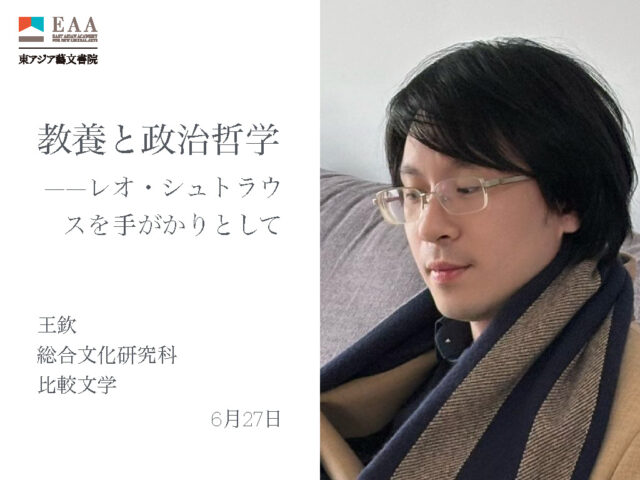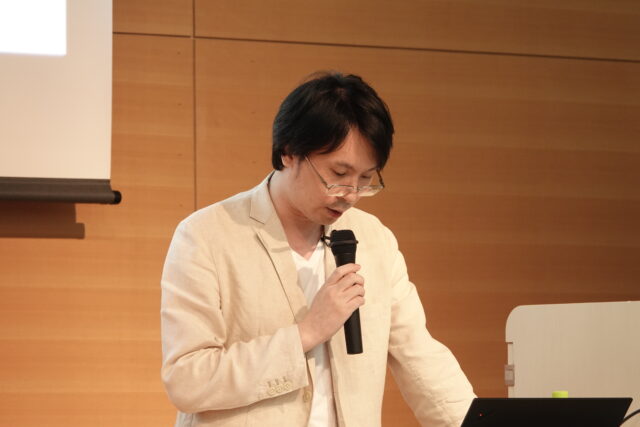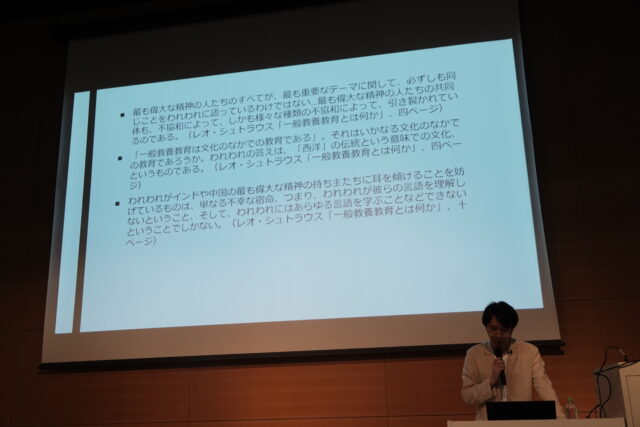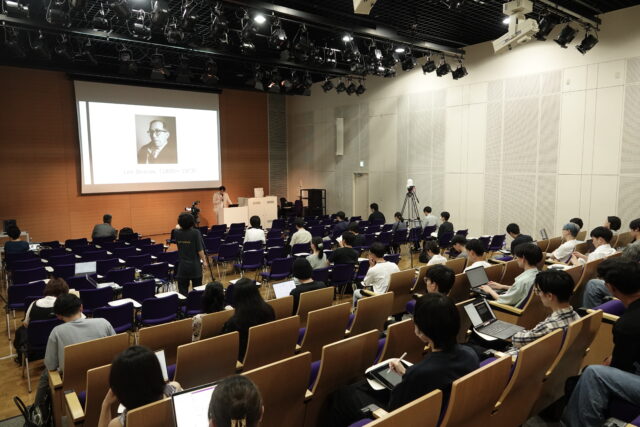
On June 27, 2025, the 11th lecture of the 2025 Academic Frontier Lecture Series, titled “Toward the World 30 Years from Now — The Changing Kyōyō, the Changeable Kyōyō,” was held at the Komaba Campus of the University of Tokyo. Professor Wang Qin from the Graduate School of Arts and Sciences delivered a lecture titled “Liberal Education and Political Philosophy: Following the Thought of Leo Strauss.”

Drawing from Strauss’s essay “What is Liberal Education?”, Professor Wang explored the core of liberal education. For Strauss, liberal education indicated “education in culture”, which aimed at cultivating intellectual and moral excellence. True liberal education, he argued, requires a Socratic attitude—reading the works of the “greatest minds” with seriousness and humility, while setting aside personal biases. This engagement fosters independent judgment and deep personal reflection.

Strauss also introduced the concept of “universal aristocracy,” an ideal in which all citizens possess rationality, forming the foundation of a liberal democratic society. However, as Professor Wang noted, Strauss used this concept with a critical undertone. Rather than endorsing it as an ideal situation, he used it to expose the distance between democratic ideals and the conditions of contemporary society. In the present day — which resonates strongly with Strauss’s time — society is often shaped by mass culture and corporate influence, rather than reasoned civic engagement. To resist this trend, Strauss emphasized the importance of returning to the classics as a way to develop critical thinking and moral clarity.

In an era that values relativism and multiculturalism, Strauss’s thought also serves as a caution against “hollow diversity”— a kind of inclusivity that lacks substance. From Strauss, we understand that true openness, must be grounded in sincere dialogue and critical reflection. Only through a thoughtful reading of classics can individuals cultivate the intellectual and ethical resources necessary to confront the complexities of modern democratic life.
Photograph and Report by Lau Sze Ho (EAA Research Assistant)








